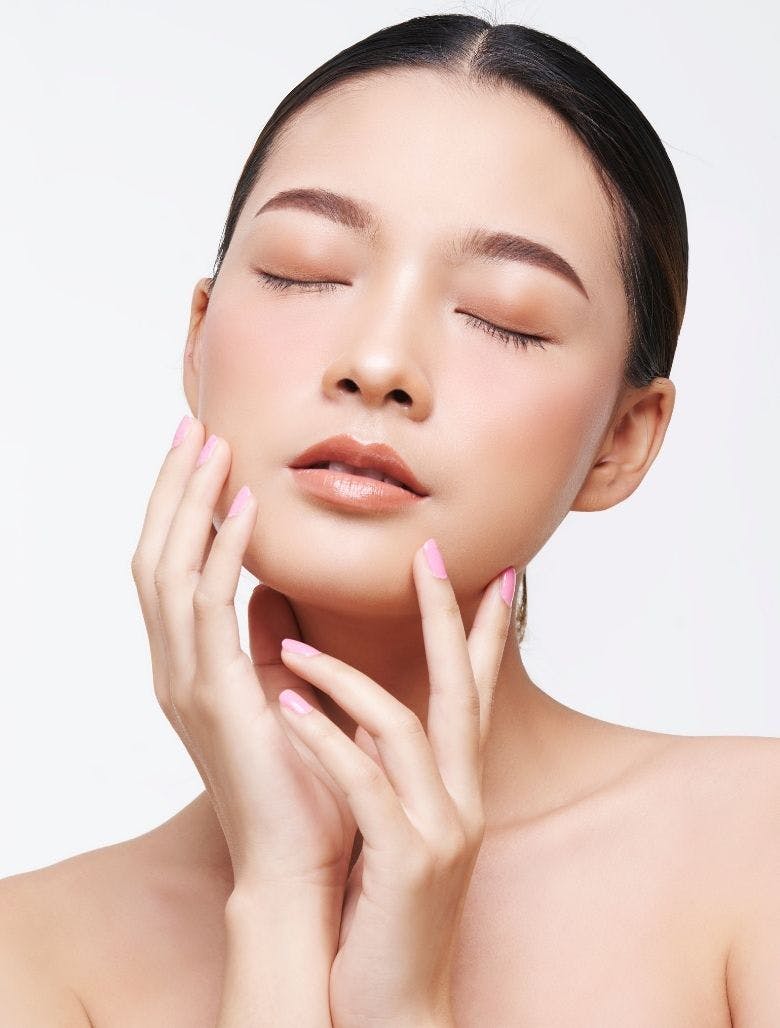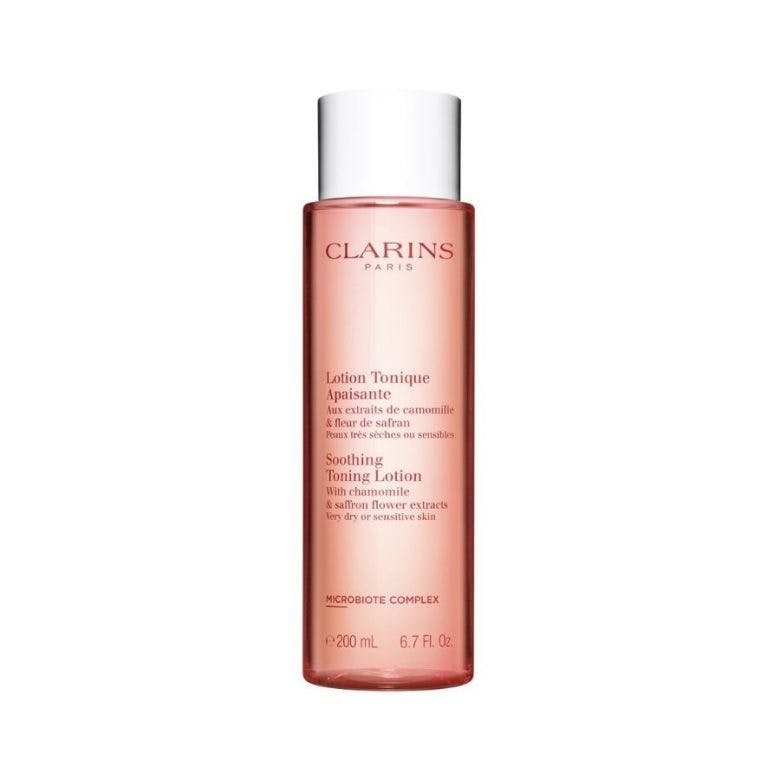Everything You Need To Know About Skin Microbiome
7 minutes read
Did you know we have more bacterial cells than human cells in our body? Yes, you’re a host of trillions of bacteria, collectively known as the microbiome.
Luckily, we don’t have microscopic eyes for your germ-phobic self to see bugs that have found a home in you. But once you know what they do to your overall health, you won’t mind them free lodging after all.
Emerging evidence shows bacteria play a vital role as a barrier between our body and the outside world.
In addition, a plethora of conditions, from obesity to anxiety, appear to be linked to the microbes inside us. So keeping these microorganisms happy and harmonious is key.
Beauty Daily speaks to leading experts about everything you need to know concerning your skin microbiome and ways to ‘rewild’ your skin through skincare, dietary and lifestyle changes to achieve your healthiest skin and self. Bacteria incoming!

What is a microbiome?
Before we dive deep into the skin microbiome, let’s talk about the microbiome.
Federica Pavesi, Co-founder and scientific director at Fermento Probiotics, explains: “There are good bacteria, like lactobacilli, while others are bad, like Staphylococcus aureus. These bacteria live together in our body in a complex ecosystem called microbiome.”
There are two types of microbiome in our body: gut microbiome (the ecosystem of bacteria, fungi and viruses that live in our gut) and skin microbiome (the ecosystem of the same microorganisms that live in our skin).
These two communicate via the ‘gut-skin axis’. When the gut microbiome is altered, it negatively affects our skin microbiome.
Recent studies showed that when the percentage of bad bacteria is high on the skin, a high level of this bad bacteria is present in our gut as well. This is a strong confirmation that when the gut microbiome is altered, these bacteria grow in our skin microbiome causing skin conditions like eczema.
“The gut microbiome works very closely with the immune system of which 70% sits along the gut- they are constantly talking to one another. If we’re not optimising our gut health, it can alter our immune responses, prompting the release of inflammatory molecules. Low-grade inflammation over a long period can harm, potentially increasing the risk of inflammatory skin conditions,” Dr Sammie Gill, PhD, RD specialist gastroenterology dietitian, and scientific research and development manager at Symprove tells Beauty Daily.
What is your skin’s microbiome?
We all know that the skin is the human body’s largest organ, and microorganisms colonise it, also referred to as the microflora. They cover the skin’s surface and reside deep in the hair and glands.
Why is the skin microbiome important?
“The skin microbiome is part of the physical layer of the skin that protects us from the outside world. Some bacteria are good and protect our skin from infections, help your immune system, heal wounds and control inflammation,” Dr Anastasia Therianou MD, PhD, London-based NHS consultant dermatologist, explains.
What affects the skin’s microbiome?
There are bad bacteria that can cause problems when they multiply.
“There is an imbalance between good and bad bacteria and when the bad are multiplying, due to environmental and lifestyle factors such as exposure to UV light, air pollution, poor nutrition or drinking. It leads to a compromised skin barrier. Disruptions in the balance on either side of the equation can result in skin disorders or infections,” Dr Therianou says.
Experts also say modern hygiene practices can damage our skin microbiome, most recently during the pandemic where handwashing using antibacterial soaps and sanitisers have become our go-to-arsenal to ward off the virus.
Incorrect usage of skincare products, products with harsh ingredients and prolonged use of antibiotics (ingested or topical) are also common culprits.
How to balance skin microbiome?
Expert advice “rewilding” your skin. It’s a new skincare trend buzzword, which, in essence, is all about fostering the skin’s microbiota (which make up the microbiome), the millions of powerful bacteria that protect and nourish our skin.
Six expert-backed ways to “rewilding” your skin
1. Incorporate microbiome skincare products into your routine
To make sure the skin is healthy, the balance of your skin microbiota needs to be restored and must remain balanced daily. You can incorporate skin microbiome friendly products that work for your skin type.
There are skincare ingredients that can help rebalance your skin flora, just like marine prebiotic, which rebalances the skin microbiota when it is disrupted due to stress and saffron flower polyphenols, which strengthens the skin’s natural defences.
These two are found in Clarins’ three new toning lotions powered by ‘Microbiota Complex’. The toning lotions are also tailored to your specific skin type making sure you’re getting the nourishment your skin needs.
If you have normal or dry skin, try Hydrating Toning Lotion
It is enriched with aloe vera and saffron flower extracts, which hydrate the skin to feel fresh and comfortable.
If you have oily to combination skin, try Purifying Toning Lotion
It’s enriched with organic meadowsweet and witch hazel extracts that purify the skin and tighten pores.
If you have sensitive skin, try Soothing Toning Lotion.
It is formulated with organic camomile and purple coneflower extracts, guaranteed to hydrate and comfort very dry and sensitive skin.

2. Start with rebalancing microbiome from within.
“Work from the inside out is my advice – our gut health is central to skin health, so target the gut microbiome with a nutrient-dense plant-based diet, ” Dr Gill, member of the British Dietetic Association (BDA), advises. Adding: “Variety is key – a hallmark feature of a healthy gut microbiome is diversity. This rule applies to our skin too. Focus on whole grains, fruits, vegetables, nuts, seeds, beans, and legumes. These foods are packed with different types of dietary fibre – a nutrient our gut microbes love. They’re also enriched with vitamins and bioactive chemicals including polyphenols (i.e., types of plant chemicals) which have been shown to play a key role in skin health.”
Another key dietary component to consider is omega-3 fatty acids found in oily fish (including salmon, sardines, and mackerel) and vegetarian sources (chia seeds, walnuts).
Eating plenty of fermented foods, such as sauerkraut, kimchi, kefir, miso, tempeh, kombucha or even natural live yoghurt and consider a probiotic supplement.
3. Supplement with probiotics
There has been a growing interest in prebiotics in the context of how they support the gut-skin axis. Probiotics are classed as live beneficial microbes, typically bacteria and yeast, that, when consumed, modulate the gut microbiome, leading to many health benefits.
Make sure that when you go probiotic shopping, you pick the one specific to your needs. Not all probiotics are the same, as thousands of different probiotic strains exist, and we need to take the right one for targeting specific health benefits.
For gut health:
Look for strains: E. faecium, L. rhamnosus, L. plantarum, and L. acidophilus. These carefully selected four strains of bacteria work in synergy with each other to help support your gut microbiome.
Symprove contains this strain and is voted by Glamour UK as the best probiotic overall. The brand is frequently regarded as the gold-standard probiotic among health experts and has had its claims backed up by an independent University College London study.
Symprove, from £39.99, symprove.com
For skin health:
Look for strains: Lactobacillus, L. acidophilus, and B. bifudum.
These probiotic strains are found to be effective in studies of acne.
The American Academy of Dermatology says probiotics could very well be the most promising future treatment for both acne and rosacea.
4. Get a restful sleep
Dr Gill explains: “Driven by our internal body clock, our gut microbes have their circadian rhythm, and this changes the shape of the microbial landscape over a 24-hr period. Given our gut microbiome will reflect in our skin, it’s key to prioritise quality and quantity of sleep – aim for 7-9 hours per night, keep timings consistent, limit screen time in the few hours before bed and keep the room cool at night to mimic the drop in body temperature.”
5. Get out in nature.
Emerging evidence suggests that green spaces can help our microbiome and boost our mental and physical health.
6. De-stress
If you’re feeling mentally stressed, the gut will feel physically stressed and this can manifest on your skin (e.g., people often report skin breakouts if they’re feeling stressed).
“There are several approaches to help calm the communication. For example, diaphragmatic breathing exercises, meditation or yoga/pilates, use of apps (e.g., Calm, Headspace, Ten Percent Happier). Put aside ‘protected time’ and do an activity that relaxes you such as reading or going for a 30-minute walk,” Dr Gill concludes.
Read Next: The Best Relaxing Essential Oil Blends For De-Stressing Your Day
Sign up for our newsletter
We will keep you in the loop for special offers, exclusive gifts and product news.

